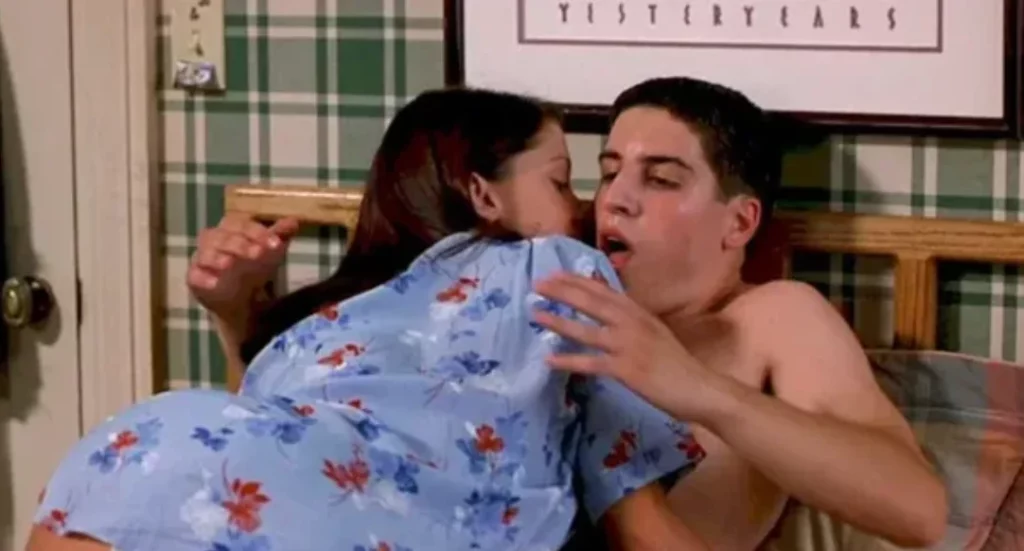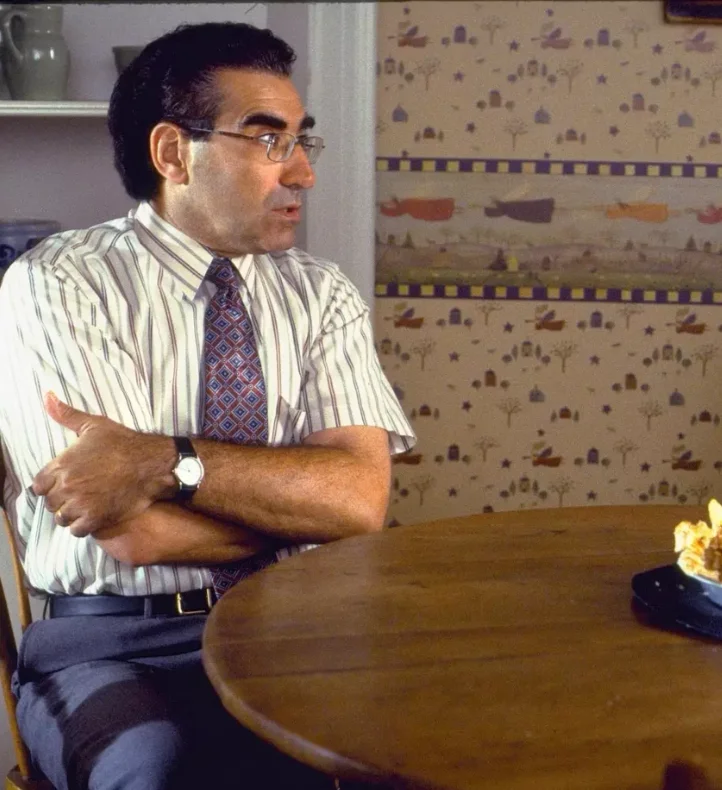Released in 1999, American Pie quickly became a cultural touchstone with its raw humor and over-the-top depiction of high school life.
The film’s controversial and boundary-pushing content, centered around a group of teens making a pact to lose their virginity before graduation, sparked a global phenomenon.
This hit led to four sequels and cemented American Pie as a staple of 90s comedy. But now, decades later, a new generation removed from the late ’90s is watching this comedy classic for the first time with fresh eyes.
For today’s teenagers, the film’s humor and storyline have aged poorly, with many now branding it as “deeply problematic.” In an experiment conducted by Vice, a group of teens aged 16 to 19 were asked to watch American Pie and share their thoughts.

Their feedback was less than enthusiastic, with many expressing discomfort over the film’s more contentious scenes and its outdated attitudes toward women.
Some viewers pointed to specific moments and character behavior as especially unsettling for modern audiences.
One troubling aspect for these teens is the portrayal of male characters’ objectification of women. Olivia, an 18-year-old participant, explained, “It’s bordering on incel attitudes.
I think if you were a teenage boy watching this, you’d basically feel entitled to behave however you wanted to towards women.”
Taylor, 16, echoed this sentiment, criticizing the male characters’ intense focus on s3x. She described it as “completely ridiculous” and suggested the film presents a distorted view of relationships.

“I think men treat women with a lot more respect and equality now,” she added, reflecting on how times have changed since American Pie first premiered. For these teens, such character portrayals feel out of touch and inappropriate.
Hannah, 17, pointed to a scene that left her feeling uneasy—Jim (played by Jason Biggs) secretly filming foreign exchange student Nadia (Shannon Elizabeth) as she undresses and later sharing it with his friends.
“It’s a huge violation of privacy and definitely a s3xual offense for Jim to film her, let alone to then share that with his friends,” Hannah remarked.
She expressed concern that the film plays this moment as a joke, rather than questioning its morality.

For Hannah, the lack of accountability for the male characters is what makes it all the more troubling.
“The film doesn’t even question the morality of doing this. It makes it seem like a joke and that the dudes are all ‘legends’ for getting the plan to work.”
The commentary from these teens reflects a broader shift in how society views consent, privacy, and respect for women.
The American Pie franchise, once praised for its “raunchy” humor and teenage hijinks, now faces scrutiny for its outdated depictions of gender dynamics.
Interestingly, even some of the film’s stars acknowledge that its humor might not be as acceptable today.
Seann William Scott, who played the iconic character Stifler, mentioned in a recent interview that many of the jokes from American Pie would likely land someone in jail if made now.

Shannon Elizabeth, who portrayed Nadia, agreed that her character’s controversial scene would likely spark backlash in the wake of the #MeToo movement. “If this had come out after the #MeToo movement, there would definitely be a problem,” she said.
The depiction of men’s entitlement to s3x and the trivialization of violations like filming without consent has raised questions about the film’s relevance in modern cinema.
While American Pie was undeniably a product of its time, today’s Gen Z audience is less inclined to laugh along with its more crass moments.
As cultural norms evolve, it seems clear that American Pie no longer holds the same comedic impact—or acceptance—among younger generations.
Featured Image Credit: (Universal Pictures)


